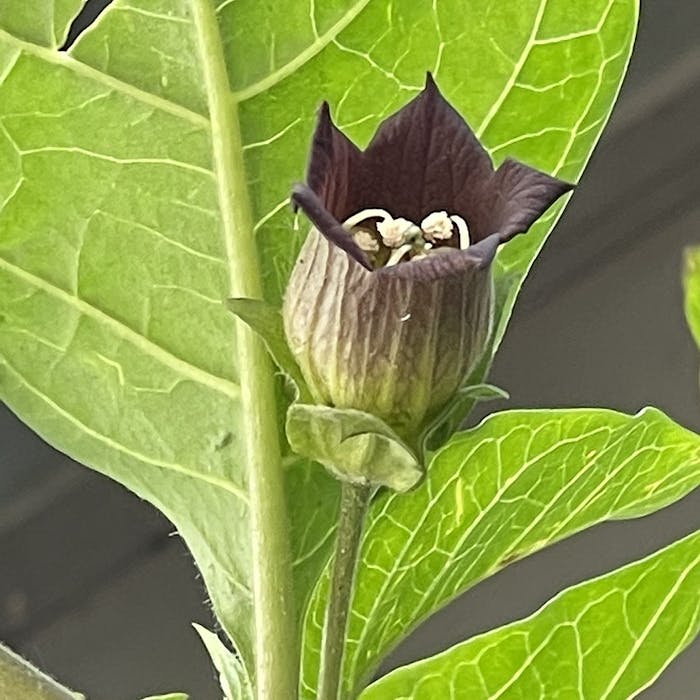
Atropa belladonna - Deadly Nightshade
The Deadly Nightshade is found mainly on chalky soils, in scrub and woodland. Its shiny black berries are highly poisonous to humans, though some mammals and birds can eat them.
Deadly nightshade - also known as Belladonna - is an extremely toxic herb that, when eaten, causes delirium, hallucinations and eventually death. It is one of the most toxic plants known, and all parts of the plant are poisonous.
Belladonna literally translates to 'beautiful lady', and during the Medieval period, women used the berries' juice to dilate their pupils to appear more attractive. Deadly nightshade has also been a poison of choice throughout history and literature, and its reputation led to the belief that witches could use it to fly.
Atropa in the Latin name of the plant is in reference to Atropos, one of the Three Fates in Greek mythology who snipped the thread of a person’s life and decided their death.
In Ancient Rome, Livia, wife of the Emperor Augustus, was rumoured to have used this poison to kill her husband. Closer to home, the Scottish King, Macbeth, whilst he was still one of the lieutenants of King Duncan I of Scotland, is said to have used the poison on English troops.
Deadly nightshade belongs to the Solanaceae (nightshade) family which includes tomatoes, potatoes, and eggplants. Europeans recognised the similarity when tomatoes and potatoes were first introduced from the Americans, and were highly suspicious initially of the new vegetables.
Further reading
Links to external websites are not maintained by Bite Sized Britain. They are provided to give users access to additional information. Bite Sized Britain is not responsible for the content of these external websites.
